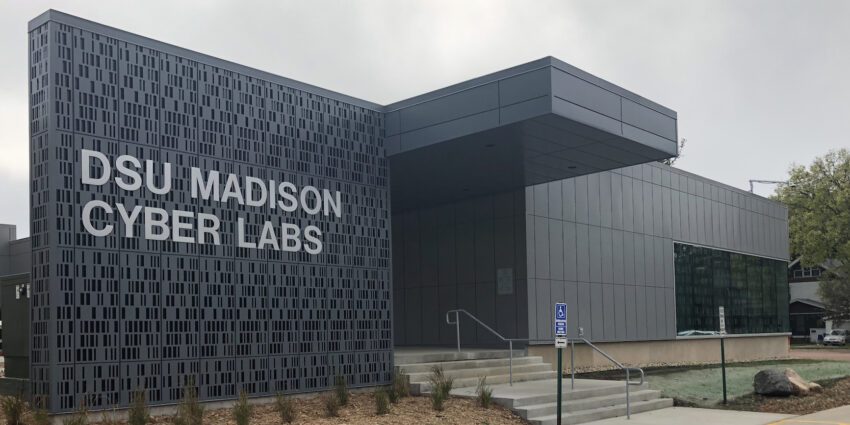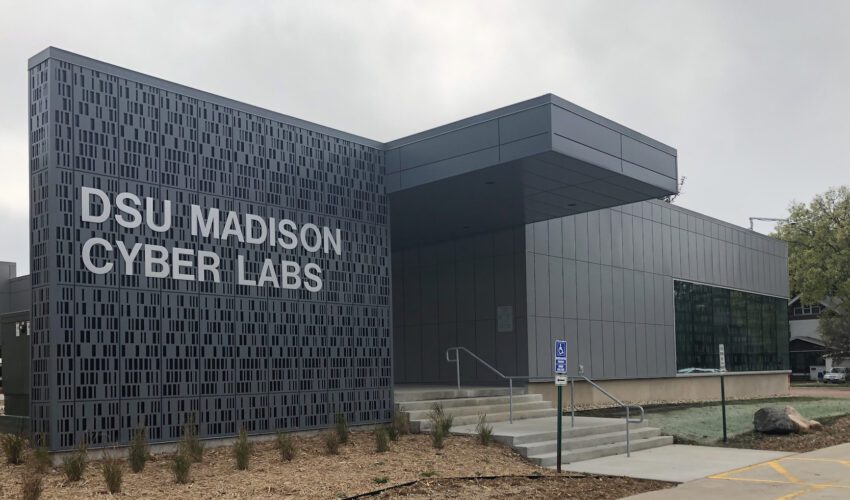DSU lab’s goal: Helping humans work better
Dec. 27, 2021
This paid piece is sponsored by Dakota State University.
Today’s companies generate troves of data, but they might not know how to process or interpret the meaning of this data.
That’s the role for Dakota State University’s Center for Business Analytics Research.
“The analytic use of statistics to find patterns from big data sets, with thousands of points, is arduous if done by people,” said Dr. Dan Talley, one of the co-founders of CBAR.
Yet this information can demonstrate trends or reveal patterns that will help increase sales, improve business outcomes or help with customer or patient care. Talley is a professor of economics and statistics and the coordinator for undergraduate business programs in Dakota State University’s College of Business and Information Systems.
CBAR, one of DSU’s Madison Cyber Labs, or MadLabs, was created in 2015 by Talley and Dr. Jun Liu as an outreach vehicle to engage South Dakota businesses, government entities and educational institutes, and help them with these business analytics. The program’s services are available to those who have ideas for projects but need additional expertise.
“DSU has a lot of expertise in analytics,” Talley said, and businesses can have conversations with CBAR to understand data sets and look for trends and patterns to make better decisions.
The basic service is free to businesses.
“We consider it a service to the community,” Talley said, but if it does develop into a full research project for faculty and students, there could be compensation through grants or publication rights. Faculty have had several such projects over the years, many with health care facilities, he said.
Dr. David Zeng, director of CBAR, said that in the future “we plan to seek more opportunities and more projects, and will be actively seeking additional collaboration opportunities with businesses, government agencies and organizations.” He is an assistant professor of information systems in the College of Business and Information Systems.
Zeng noted that there are two components to CBAR, educational and academic, and research. “Both parts are critical for the future success of this MadLab,” he said.
“Research is important so that we can gain insights that may help other businesses in the same industry, regionally or nationwide,” Talley said.
The educational and academic component of MadLabs is important to building a workforce with the skills companies need.
“Businesses need talent,” Zeng said. “This is a big problem for companies.” The workforce talent also will need experience with more than coursework or computer knowledge. “That’s not sufficient anymore,” he said because employers are looking for employees who can handle big data and do data-intensive work.
Through collaborations with CBAR, “we could combine research projects with the programs we teach, like the Master of Science in Analytics, the new Artificial Intelligence in Organizations degree and other AI programs,” Zeng said.
Once a research project is created, companies will look to deploy the model to increase customers, profits or sales. Experience in researching a project and considering “what’s next” will be valuable for students before they face potential employers. Talley added that students who have such experience report that the techniques they learned have been especially useful on the job.
Zeng said businesses that collaborate with CBAR “will influence the way we develop our students, and hopefully they can attract some of them to stay in the state and offer them opportunities.”
That makes this a win-win situation, he said.
To learn more about CBAR, contact Zeng at [email protected].









